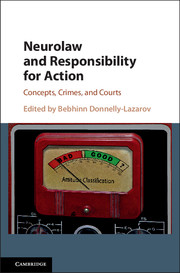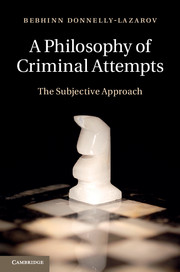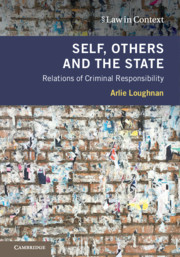Neurolaw and Responsibility for Action
Law regulates human behaviour, a phenomenon about which neuroscience has much to say. Neuroscience can tell us whether a defendant suffers from a brain abnormality, or injury and it can correlate these neural deficits with criminal offending. Using fMRI and other technologies it might indicate whether a witness is telling lies or the truth. It can further propose neuro-interventions to 'change' the brains of offenders and so to reduce their propensity to offend. And, it can make suggestions about whether a defendant knows or merely suspects a prohibited state of affairs; so, drawing distinctions among the mental states that are central to legal responsibility. Each of these matters has philosophical import; is a neurological 'deficit' inculpatory or exculpatory; what is the proper role for law if the mind is no more than the brain; is lying really a brain state and can neuroscience really 'read' the brain? In this edited collection, leading contributors to the field provide new insights on these matters, bringing to light the great challenges that arise when disciplinary boundaries merge.
- Covers both philosophical and practical implications, helping readers to draw considered conclusions
- Written in an accessible way for those with no background in neuroscience, helping lawyers, philosophers and others understand the implications of neuroscience for the law
- Includes insights about the conceptual limitations of neuroscience, helping readers to see the difficulties that arise when disciplinary boundaries merge
Product details
May 2018Hardback
9781108428705
310 pages
235 × 157 × 21 mm
0.57kg
3 b/w illus.
Available
Table of Contents
- Introduction
- Part I. Conceptual Disputes: Brains as the Locus of Responsibility?:
- 1. Neuroscience and the explanation of human action Dennis Patterson
- 2. 'Nothing but a pack of neurons:' the moral responsibility of the human machine Michael S. Moore
- 3. Non-eliminative reductionism: not the theory of mind some responsibility theorists want, but the one they need Katrina Sifferd
- 4. Intention as non-observational knowledge: rescuing responsibility from the brain Bebhinn Donnelly-Lazarov
- 5. Efficient causation and neuroscientific explanations of criminal action Nick J. Davis
- Part II. Epistemic Disputes: What does Neuroscience Tell Law about Responsibility?:
- 6. Lying, deception, and fMRI: a critical update Michael S. Pardo
- 7. Brain-based lie detection and the mereological fallacy: reasons for optimism John Danaher
- 8. Is brain reading mind reading? Pim Haselager and Giulio Mecacci
- Part III. Implications for Courts and Defendants:
- 9. Unlucky, bad, and the space in between: why criminologists should think more about responsibility Peter Raynor
- 10. Neuroscience and the criminal jurisdiction: a new approach to reliability and admissibility in the courts of England and Wales Joanna Glynn
- 11. Should individuals with psychopathy be compensated for their fearlessness? (Or how neuroscience matters for equality) Marion Godman
- 12. The treatment of psychopathy: conceptual and ethical issues Elizabeth Shaw.





